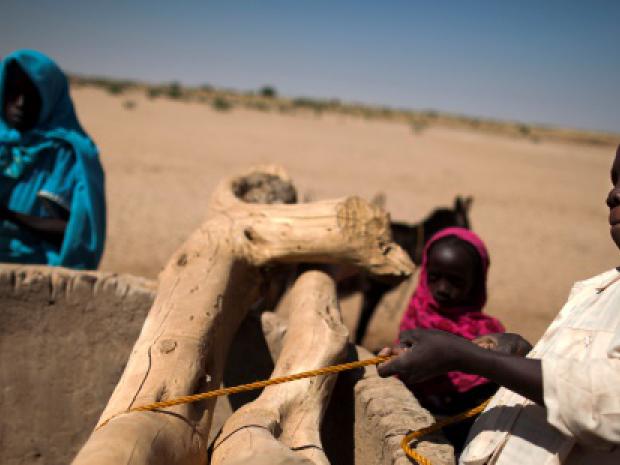Climate for Change in Sudan
Discussion details

Until the late 20th century, a typical landscape in the Sahel - a transitional zone in Africa that lies between the Sahara desert and the savannahs - would include baobab and acacia trees and a sparse grass cover.
Today, climate change and the resulting desertification are changing this picture. Rainfall in Sudan has become more erratic, increasing the stress on pastoralist and farming communities. This has damaged water supplies and aggravated conflict over dwindling natural resources.
Displacement has created dense urban populations with distorted economies. The following increase in energy demand is now a major driver of environmental degradation in Sudan, particularly the loss of forest cover, leaving communities more vulnerable to the effects of climate change.
Several projects implemented by the United Nations Environment Programme (UNEP) in Darfur and other parts of Sudan aim to halt the vicious cycle of climate change, resource scarcity and conflict by helping communities sustainably manage and restore their ecosystems, which provide fuel, water and protection from the growing heat.
UNEP's Darfur Alternative Energy Project is promoting a combination of improved fuel efficiency, greater use of alternative energy and well-managed woodlots to prevent further depletion of forest resources. Efforts are also being made, in cooperation with the Forest National Corporation (FNC), to restore the degraded forests by tree-planting and investing in seedling nurseries.
Following the historic Paris Agreement on climate adopted in December 2015, UNEP partnered with the UK Government, through the Department for International Development (DFID), on a new £10 million, four-year programme called Adapt for Environment and Climate Resilience in Sudan (ADAPT!), which aims to enhance climate resilience and environmental management in Sudan.
UNEP has also contributed to UN efforts to develop a recovery strategy for Darfur, which includes integrated water resource management, environmental technology transfer, community environmental management and support to environment ministries.
Involving communities in the management of the environment and natural resources is crucial to the long-term sustainability of UNEP's projects in Sudan and to the peacebuilding process in the region. For example, local communities and citizen groups have been actively participating in the re-greening of Darfur cities.
Log in with your EU Login account to post or comment on the platform.